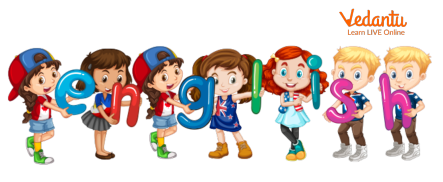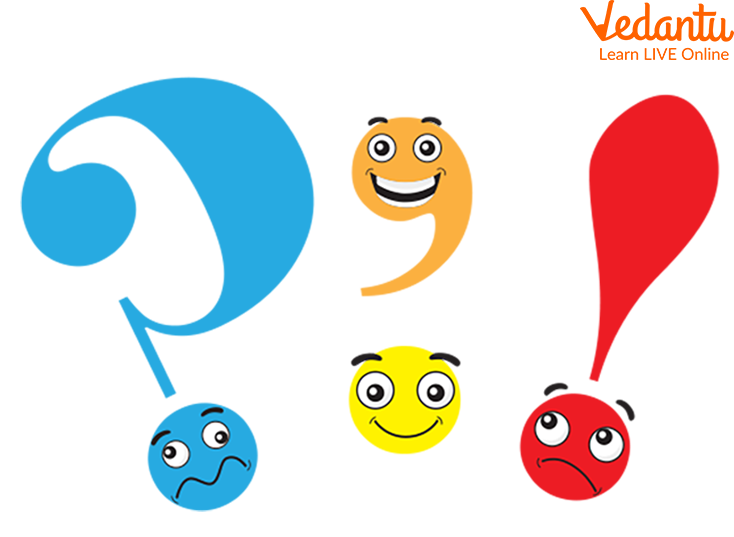




What Your Child Will Learn in Year 2 English
In the learning phase of year 2, our kids used to develop confidence once they gain some basic knowledge of grammar and punctuation, speaking, reading, and writing skills.
Children become familiar with a common vocabulary. At this point in time, we should encourage our children to explore their own ideas through creative writing and poetry.

English For Kids
The main source of their learning English come from talking, listening and reading. In this article, you will learn what basics of English Grammar your kid should know in year 2 English learning.
What Should be Taught in Year 2 English?
There are a lot of different simple things and concepts of English grammar that we can teach kids to develop their English skills.
1. Grammar and Punctuation
Basic rules of English grammar and punctuation are the basic things that a 6-7 year child should know.
In the basic concepts of grammar, a child should know the use of different types of sentences, suffix and prefix, noun, pronoun, conjunctions, articles etc.
The knowledge of punctuation marks is also important for kids. They should know where to use punctuation marks such as question marks, full stops, exclamatory mark and commas etc.

Punctuation Marks
2. Spelling
As a kid grows, he/she gets to learn a lot of more tricky words. It is the time when introduced to different word meanings. Hence we should keep teaching new words.
3. Writing
Good writing skills are necessary to learn for every child. The writing skill helps kids to improve their communication skills as well.
If a kid focussed on his writing skills, bring your child's attention to phonetics and reading comprehension.
4. Handwriting
Handwriting is also an important factor.
In year 2 English, the child will learn the formation of letters of the right size such as where the lower case and upper case letters are required.
5. Reading and Listening
Reading and listening are two important skills for improving a child's English.
Children improve their vocabulary by reading and listening. Hence we should encourage them to read.
Conclusion
We often get confused about what concepts and things should be introduced to a child when he/she is small.
The above article is useful for parents and teachers as they will get an idea of what should be taught to a 6-7 years old kid.
FAQs on Year 2 English for 6-7 Year Olds: Key Skills & Fun Learning
1. What key English skills should a Year 2 child (age 6-7) master?
For a child in Year 2, the focus is on building a strong foundation in English. The essential skills include:
- Reading Comprehension: Understanding the main idea of short stories and poems.
- Foundational Grammar: Identifying and using naming words (nouns), action words (verbs), and describing words (adjectives).
- Basic Writing: Forming simple, grammatically correct sentences with proper punctuation, such as capital letters and full stops.
- Vocabulary Building: Learning new words through reading and conversation, and understanding their meanings.
Mastering these areas is crucial for their overall language development. For more details, you can explore the complete CBSE Class 2 Study Materials.
2. What are the main topics in the CBSE English curriculum for a Year 2 student?
The CBSE English curriculum for the 2025-26 session aims to develop fundamental language skills. Key topics include:
- Grammar Basics: Introduction to nouns (naming words), verbs (action words), adjectives (describing words), and pronouns.
- Punctuation: Correct usage of capital letters, full stops (.), and question marks (?).
- Sentence Structure: Learning to construct simple, meaningful sentences.
- Reading: Reading and understanding short stories and poems from NCERT books like 'Mridang'.
- Vocabulary: Introducing new words, opposites, and words related to pictures and daily life.
For a detailed breakdown, you can refer to the official Class 2 English Syllabus 2024-25.
3. What kind of writing skills are expected from a 6-7 year old?
By the end of Year 2, a 6-7 year old should be able to write simple, coherent sentences on familiar topics. Key expectations include:
- Writing short, descriptive sentences using basic vocabulary.
- Using capital letters to start sentences and for proper nouns.
- Ending sentences with a full stop or a question mark.
- Writing a few lines to describe a picture or an event.
- Answering simple questions in complete sentences.
4. Why is learning English grammar so important at this age?
Learning grammar at age 6-7 is crucial because it provides the structure needed to communicate clearly. It's like building the frame of a house; without it, the words (bricks) don't hold together properly. A good grasp of grammar helps a child to express their ideas accurately, understand what they read, and build confidence in both speaking and writing. It lays a solid foundation for more complex language skills in later classes. You can explore core concepts in our section on English Grammar for Class 2.
5. How do reading skills typically develop for a Year 2 student?
For a Year 2 student, reading skills develop progressively. They start by confidently recognising letters and their sounds (phonics). This builds into blending sounds to read simple words. As they practise, they begin to recognise common words by sight, which increases their reading speed. The next step is reading simple sentences fluently and, by the end of the year, they should be able to read short paragraphs or simple stories and understand the main message. This journey from decoding words to understanding stories is a key part of their English learning.
6. What is the difference between a naming word (noun) and an action word (verb) for a 6-7 year old?
For a 6-7 year old, the simplest way to understand the difference is:
- A naming word (noun) is the name of a person, place, animal, or thing. It tells you 'who' or 'what' you are talking about. Examples: boy, school, dog, ball.
- An action word (verb) is a 'doing' word. It tells you what action is happening in the sentence. Examples: run, eat, play, sleep.
For example, in the sentence "The dog runs," 'dog' is the naming word (noun) and 'runs' is the action word (verb).
7. What are some fun and effective ways to help a Year 2 student build their vocabulary?
Building vocabulary should be an engaging process, not just memorisation. Fun and effective methods include:
- Reading Together: Read storybooks and pause to discuss new or interesting words.
- Word Games: Play games like 'I Spy' with descriptive clues (e.g., 'I spy with my little eye something that is bright and yellow' for 'sun').
- Use New Words in Conversation: Actively use new words in daily chats. For example, instead of 'big,' use 'enormous' or 'huge' and explain what it means.
- Picture Association: Use picture books or flashcards to connect words with images, which helps in retaining their meaning.















